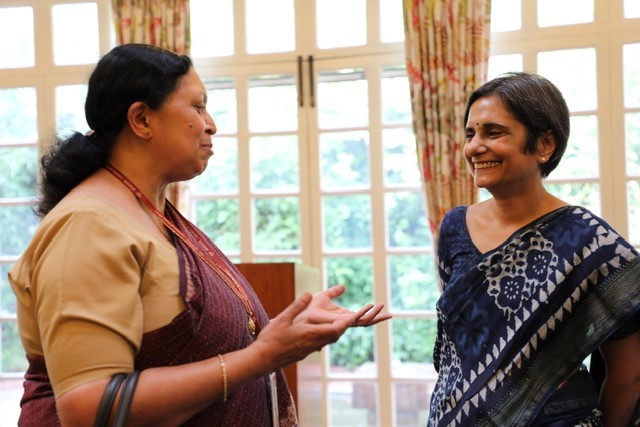Someone rightly said, the only barrier to promotion should be talent and effort. But women who account for almost 50% of the world’s population, whose contributions to our society are key to its functioning, despite exceling in a variety of fields have abysmal representation in them. One such area is Science, where less than 30% of the workforce are women. So, when a Newton-Bhabha alumnus Prof. Gagandeep Kang was elected as a fellow of the oldest scientific academy in continuous existence, the Royal Society, we thought of celebrating! The Royal Society Fellows are amongst the most distinguished scientists, recognised for their exceptional contributions in their area of work. A high tea was hosted by the British High Commissioner to India, Sir Dominic Asquith, to celebrate this occasion and recognise achievements of women in the field of science.
The event saw speeches by Prof. Kang during which she shared her life’s journey in science that left the audience awestruck and Sir Dominic Asquith who called her ‘a wonderful example of that living bridge between the two countries’. Both emphasised the importance of giving women more opportunities to make their careers in sciences. Prof. Kang also shared how she started working on the ‘less fashionable’ rota virus and how simple networking helped her expand the project from the UK to India and then with Malawi!
‘What the Newton-Bhabha Fund allowed us to do was to work with researchers in the UK, Malawi and in India to be able to access populations in all these area to try and understand why vaccines don’t work well.’
The Newton-Bhabha fund offers multiple programmes covering a wide spectrum from capacity building programmes to funding research projects through to the translation of research into innovation. Currently, the fund has more than 40 programmes running, providing funding and capacity building opportunities to researchers in both the UK and India to partner with the UK and Indian organisations and universities.

